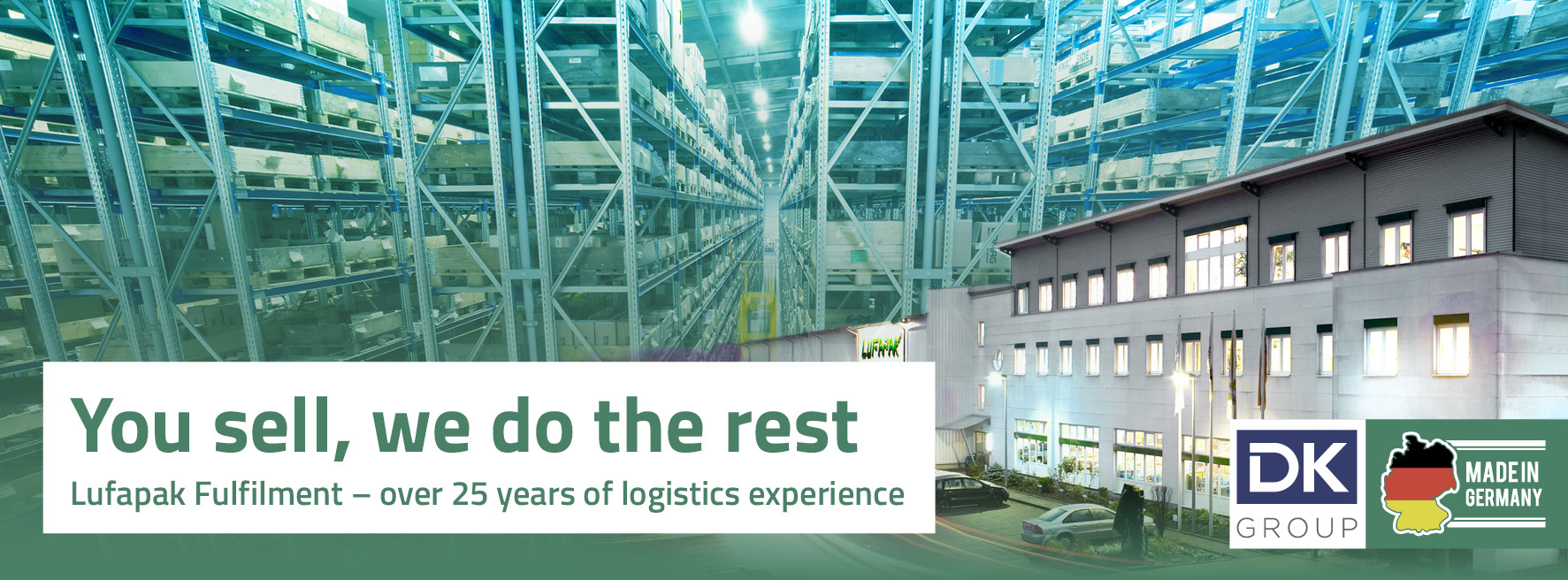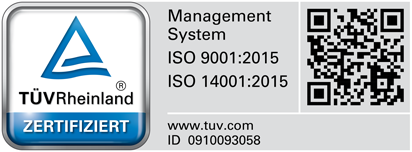sales@lufapak.de +49 2631/384-0 Contactform
LCL (Less than Container Load)
The international movement of goods requires sophisticated transport solutions for different shipment sizes. LCL shipping offers particular advantages for companies with smaller quantities of goods. This guide explains the key aspects of Less than Container Load transportation.
What does LCL (Less than Container Load) mean?
Less than Container Load refers to the transportation of goods whose volume is not sufficient to fill an entire container. With this form of transportation, several shippers share the available space in a container. Freight forwarders bundle various shipments into a consolidated load, which optimally utilizes the container. Shipments are usually sent on pallets or in special transport crates, which must be precisely labeled. For exporters and importers, this means maximum flexibility when choosing their shipment sizes. Medium-sized companies in particular benefit from this option, as no minimum quantities are required for transportation.
The advantages of LCL shipping
Flexibility with small shipment quantities
The LCL concept enables the cost-effective transportation of smaller quantities of goods in international trade. Shippers only pay for the freight space they actually need, which significantly reduces transportation costs. This flexibility particularly supports companies with fluctuating order volumes or seasonal business. At the same time, the financial risk is minimized as no upfront investment in large stocks is necessary. The purchase of goods can be managed according to demand, which reduces the amount of capital tied up and improves liquidity.
Cost savings through consolidated transportation
LCL logistics is based on the principle of shared container use. Several shippers share the basic costs for the container, which significantly reduces the transport price per cubic meter. This cost structure makes LCL shipments particularly attractive for regular small consignments. Additional savings result from reduced storage costs and optimized order quantities. Professional freight forwarders ensure efficient consolidation of the various shipments and guarantee on-time deliveries.
LCL logistics in detail
The route of your LCL shipment
The transportation process of an LCL shipment passes through several coordinated stations. After collection from the shipper, the goods first arrive at the consolidation center. There it is put together with other shipments according to destination. Specialized logistics partners take care of professional container loading, taking all safety aspects into account. State-of-the-art tracking systems enable continuous shipment tracking from dispatch to delivery. The entire logistics chain is supported and documented by digital processes.

Consolidation centers and their function
Consolidation centers are at the heart of LCL distribution. These specialized logistics centers are equipped with state-of-the-art handling facilities and experienced specialist staff. Incoming consignments are checked, sorted and prepared for onward transportation here. Various consignments are bundled according to sophisticated systems that optimally coordinate delivery times and routes. Professional warehousing and efficient handling processes ensure that everything runs smoothly. Digital control systems support the precise planning and execution of all work steps.
Understanding and optimizing LCL costs
Cost factors in LCL shipping
The cost structure of an LCL shipment is made up of various components. In principle, the calculation is based on volume or weight, with the higher value being decisive. The main cost factors include basic freight, port charges and local surcharges. There are also costs for documentation, customs clearance and any insurance. Transportation service providers also charge fees for the consolidation and deconsolidation of goods. Professional freight forwarders offer transparent cost breakdowns and advice on optimizing shipment parameters.
Cost comparison: LCL vs. FCL
Various economic aspects play a role in the choice between LCL and FCL transportation. LCL shipping is particularly cost-effective for shipments up to around 10 cubic meters. Although the costs per cubic meter are higher than those of an FCL shipment, the total amount is lower. In addition to the volume, factors such as route, season and urgency are decisive for the cost calculation. Choosing the right type of transport requires a careful analysis of the specific requirements. Regular price comparisons between different providers optimize the cost-benefit ratio.
Practical tips for your LCL shipment
Packaging and marking
Proper packaging plays a central role in LCL transportation. Robust transport packaging protects the goods from damage during consolidation and transportation. Standardized pallets facilitate handling and optimize the use of space in the container. Clear markings on all packages ensure correct allocation during the entire transport process. Special notes on the packaging provide information about special handling instructions or storage conditions. Compliance with international packaging guidelines avoids delays in customs clearance.
Documentation for LCL shipments
Complete documentation ensures that LCL shipments run smoothly. Required documents include commercial invoices, packing lists and certificates of origin. Transport documents such as bills of lading confirm the shipment of goods and serve as proof of ownership. Precise descriptions of goods and correct customs tariff numbers speed up customs clearance. Digital document management systems facilitate the administration and exchange of all relevant paperwork. Regular staff training ensures that documents are prepared correctly.
Challenges and solutions in LCL transportation
Time management for LCL shipments
The transportation time of an LCL shipment requires careful planning. Consolidation processes extend the overall transit time compared to FCL shipments. Modern tracking systems enable precise monitoring of the supply chain. Delays can be minimized through clever route planning and flexible transport options. Professional logistics partners guarantee reliable transit times thanks to optimized processes. Coordinating shipping times with production and delivery dates ensures that goods are delivered on time.
Quality assurance in groupage transport
Groupage transport places special demands on quality assurance. Regular checks during consolidation ensure the integrity of the goods. Modern storage technology and air-conditioned handling centers protect sensitive goods. Professional packaging systems minimize the risk of transport damage. Trained personnel ensure that all consignments are handled correctly. Quality management systems continuously document and optimize all process steps.
Future trends in LCL logistics
Technological developments are fundamentally changing LCL transport processes. Digital booking platforms simplify order processing and optimize route planning. Blockchain technology increases the transparency of the supply chain and minimizes documentation errors. Artificial intelligence supports automatic shipment allocation and improves container capacity utilization. Sensor systems continuously monitor transport conditions and report deviations immediately. Innovative tracking systems enable every single LCL shipment to be tracked to the second.
Digitalization in LCL shipping
Digitalization is revolutionizing LCL logistics processes. Electronic waybills are increasingly replacing paper-based documents and speeding up processing. Automated customs systems simplify the cross-border clearance of goods. Cloud-based management systems enable fast data exchange between all parties involved. Mobile applications provide access to up-to-date shipment information and simplify communication. Digital assistance systems optimize the planning of groupage transports and reduce empty runs.
Conclusion: LCL as a flexible shipping solution
Less than Container Load offers an efficient solution for transporting smaller quantities of goods in international trade. Flexible adaptation to fluctuating shipment volumes enables cost-effective transportation without minimum quantities. Professional LCL service providers guarantee secure and punctual deliveries thanks to optimized processes. Advancing digitalization is continuously increasing the efficiency of groupage freight transport. Companies benefit from reduced storage costs and improved liquidity thanks to needs-based goods procurement. The integration of modern technologies increases the transparency of the entire transport chain.
The importance of LCL shipments will continue to increase due to global trade flows and changing consumer habits. Improved tracking options and automated processes increase the attractiveness of this form of transportation. Specialized logistics service providers are continuously developing new services to optimize groupage shipments. The combination of economic efficiency and ecological benefits makes LCL a forward-looking option in the international transportation of goods. Professional advice helps to select the optimum shipping solution for individual transport requirements.
Contact us now and get advice

